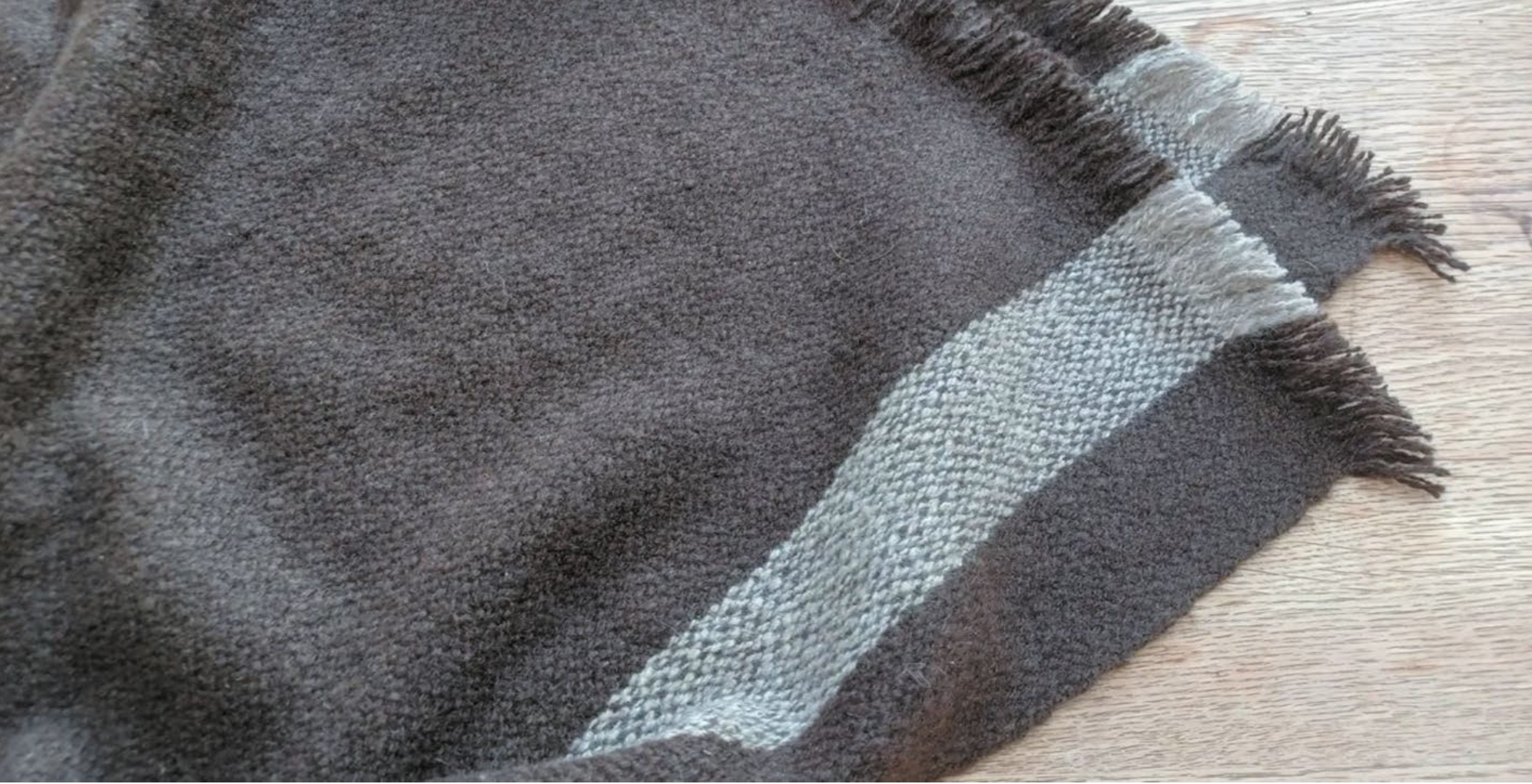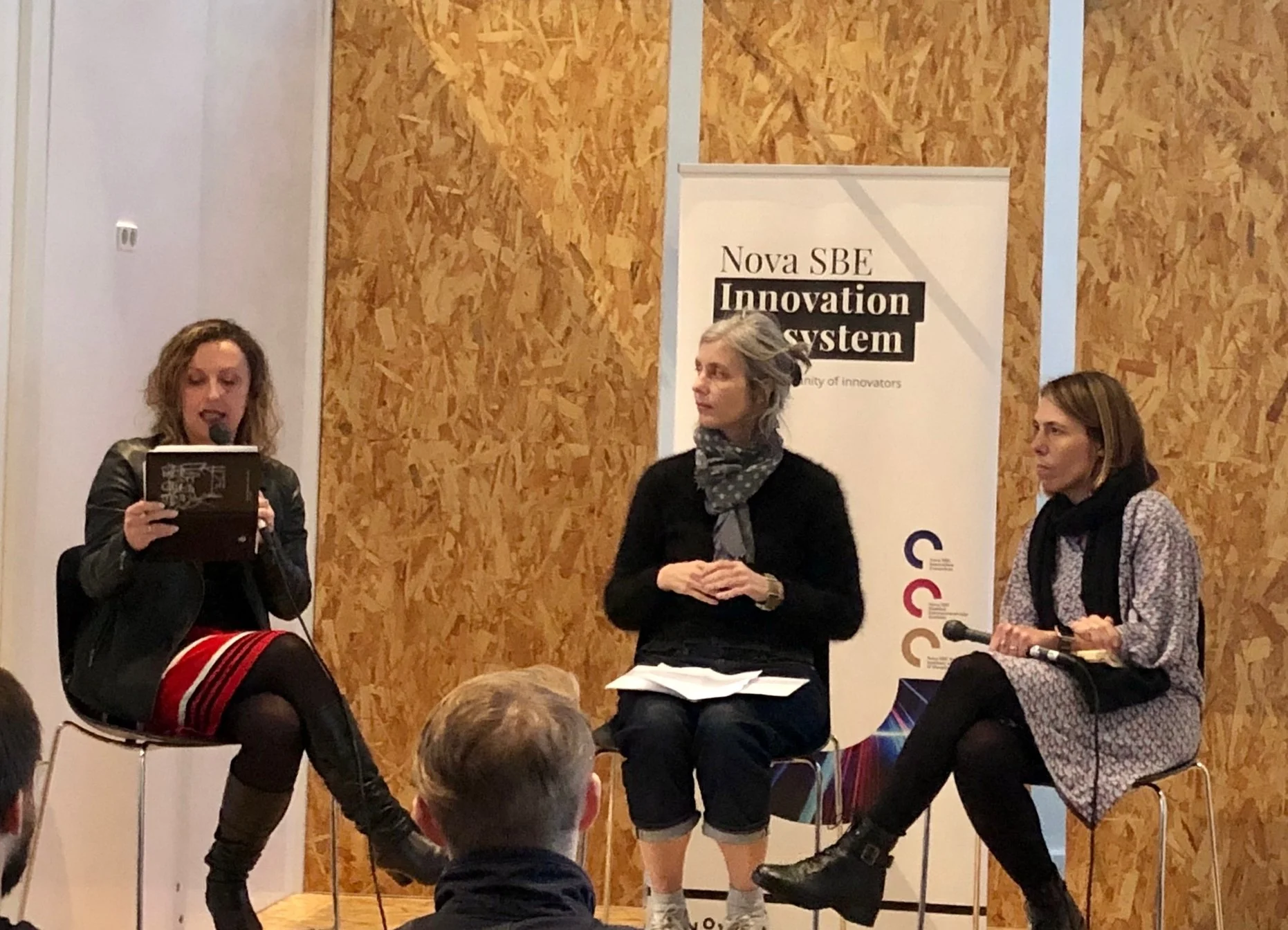Beyond the bubble
I had the pleasure of working with the Calouste Gulbenkian Foundation and 11 projects and organisations selected to be part of their Climate Participation call in Portugal. The purpose was to engage people who are ‘out of the climate bubble’ in climate conversations, and the projects range from involving the population in citizens’ assemblies to develop climate policies; a documentary filmed by children engaging with elders to talk about climate; the restoration of river flows involving the local community; and protecting seagrass meadows by fostering local leadership, among others.
Through a series of interviews, research, online sessions and in-person workshops, we explored their ambitions and challenges and create a collective vision of the future. It was incredibly rewarding to play a part in the birth of this community, which brought together diverse projects from various parts of the country, united by their unwavering commitment to mitigate and adapt to climate change. Are these drops of good actions in the middle of an ocean of climate backlash? Maybe. So may more drops come forward and show that these champions are not alone.
Good Growth: A ‘landscape approach’ that shifts the logic of the fashion value chain
It was a pleasure to write about Good Growth - one of now-on clients - and their mission to ‘restore nature and improve livelihoods’ by taking a ‘landscape first’ approach to their value chains.
The story is featured in ‘The Palgrave Handbook of Sustainability in Fashion’, launched in December 2024. The handbook provides a 'comprehensive look at key issues and innovations in the fashion industry and their impact on sustainability', covering 'new and cutting edge topics, such as accessibility, activism and digitalisation'.
Image: Lightweight yak wool blanket, using undyed yak wool from Mongolia, hand woven in Nepal. (Photo by Julian Wilson, Khunu)
Time to rethink…
“OUR CHOICES ARE ONLY AS GOOD AS THE OPTIONS PRESENTED TO US.”
This is what Mariana van Zeller, journalist and 5x Emmy Award recipient, thinks after researching black markets. By sharing stories of “normal people” who work in this “sector” out of pure lack of choice, she challenged us to consider what we’d do in their shoes.
She was one of the speakers at the Time to Rethink Estoril Conference 2024. I liked that this wasn’t yet another sustainability conference. The biggest challenges of our time were all interconnected, with no pretence of simplicity or silver bullets. Although intuitive, some messages are worth remembering and living by…
What do you care about?
Since launching The Sofa Activist first prototype, we received an honourable mention from the Climate Finance Catalyst Contest and were selected to participate in the Women In Impact Accelerator run by the Startup Discovery School, and the FinTech House Sprint program.
We have now launched a new version of the test, which provides a profile and a personalised report powered by AI, and joined the Sprint program at the Fintech House.
Take the test and watch this space!!
Preventing Viral Spillover
I had the pleasure to participate in a 3-day workshop in Glasgow with scientists, doctors, veterinarians, ecologists and other professionals who are part of the Lancet Commission on Preventing Viral Spillover – an intersection between 4 major systems: health, food, climate, and biodiversity. My role was to facilitate a session is system change and mapping together with another system change expert from Nexial.
Here is a short science story I learnt over there.
Fundraising in Portugal
I was kindly invited by EC-Consulting to share our knowledge about some of the challenges non-profit organisations face when fundraising in Portugal. These insights were informed by my experience as board member of the Lisbon Project and the Circular Economy Portugal, as well as my work with the Calouste Gulbenkian Foundation and with smaller grassroots groups in the country.
You can read more in their blog here.
Change of heart in fashion
Through the work we’ve been doing at now-on, helping people and organisations to live and work more sustainably and facilitating change, we had a chance to see the fashion industry through the lens of foundations, non-for profits and purpose-led fashion businesses — and learnt the real power of this industry to transform itself into a more sustainable one, to bring people along with them and to create a positive impact — if it puts its mind into it. This article brings 5 observations we believe could ignite transformation at scale.
“I want to work in sustainability, but not sure where to start…”
Lots of people have been approaching our team with this question. The field of sustainability is complex, vast and diverse. More and more people feel concerned about where the world is going, but also inspired by the innovations and solutions coming up in this space (…) as ‘sustainability geeks’, we decided to make a list with our team’s top 10 references that we believe may help people who want to migrate into this space to understand where we are as a ‘global community’, how we got here, and what we could do to make things better for everyone.
Purpose, social impact and innovation
“Before thinking about innovation and solutions, we need to conduct a holistic and systemic analysis of the situation, so we can design an innovative response that does not have negative consequences in other areas. As an example we have the lithium exploration in Portugal. Although there is a greater need for batteries for electric products, the mining activity has harmful consequences for the environment and for the people who live around the area. The issue is complex, but we can begin to explore it in the following way: what is the problem we are trying to solve? (Who are the stakeholders?) Do we need more cars or better public transportation? If we produce more cars, what is the best way to do it? Do we want battery-powered electric cars or do we invest more in hydrogen? What is the social and environmental impact of all this?"
Read more on Close Encounters - From Purpose to Impact, a debate promoted by Nova SBE Innovation Ecosystem, facilitated by Paula Oliveira, founder and director at now-on consulting.
The influence of creative consultancies in the economic system
Creative consultancies are often at the centre of strategy, innovation and branded experiences provided by a range of organisations, from businesses of all shapes and sizes to foundations and non for profit organisations.
These outputs influence the behaviour of their customers, beneficiaries, consumers and partners, ultimately shaping societal values and identity which inform decisions across the many roles we play in our lives.
These relationships are illustrated in this map, adapted by now-on from the Economic System Map by Laudes Foundation and Nexial, licensed under CC BY-SA 4.0.
Click on the map to enlarge it… or get in touch if you’d like to explore it together and see how to better leverage these relationships for good.
Rethinking the role of collaboration — 4 questions we should be asking ourselves
The scale and urgency of the world’s biggest challenges have grown at an alarming rate, and for many they can be difficult to absorb, let alone consider how to tackle them. There is no simple solution, but what’s clear is that we can’t do this alone. The complexity and the hope of solving global issues go well beyond the reach of any one organisation or corporation — it’s demanding faster and deeper networked collaborations between private, public, third sector and consumers.
Why systems thinking sits at the core of sustainable change
Therefore, the practice of systems change is about understanding all the moving parts of a system to assess how, where and when to intervene to positively affect a system (…) Ultimately, systems change is about adopting the principles of systems thinking in our lives, our work and the way we make choices moving forward.
School Stories: Making the transition into the world of systems change
This post is part of a series of articles and interviews with Forum for the Future’s School of System Change alumni. The purpose is to share stories of how the learning experience impacted people’s lives and share their stories of systems change in practice since doing Basecamp. In April 2021, Paula Oliveira was interviewed and shared how the school inspired changes in her life and how she’s navigating the system change scene in Portugal and beyond.











